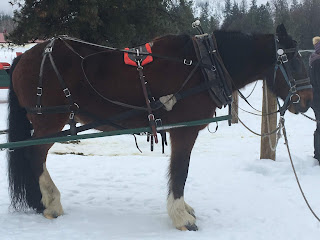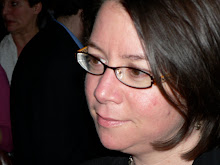This month marks the tenth anniversary of our living in this house. Isn’t that awesome? It’s a wonderful home for us and we are very happy here. When we first moved in, I felt that after ten years, we should move out again – or seriously pretend to, in order to refresh the place the way you do when you move out (and then you wish you had done it years before). I imagined repainting, refinishing the floors, that kind of thing. Now, that sounds extremely expensive and disruptive to me. But lucky for me, there is a different trend in home revitalization right now, which is essentially free: the wonderful Marie Kondo and her method of tidying. You do your whole house all at once (which means over a period of perhaps six months); just the kind of effort I’d like to put in to honor our house in 2019. And I do love a structured curriculum.
Wow, is it great. I started with my clothes. I felt like I didn’t have very many clothes, but I have to admit that when I went and got every stitch of my clothing from everywhere in the house and piled it on my bed – not only from my own dressers and closet but also from boxes in the basement, hangars in the front hall, etc – it was a pretty big pile. (It almost all fit on my bed, though.) I held each single item in my hands; if it sparked joy, I kept it, and if not, I thanked it for what it had done for me, and bagged it up for donation. I was amazed to find that using this process, I bid farewell of 75% of what I had. And yet now that I am done, I feel like I have more than when I started! Because when I open my drawer, I see only things that delight me. Wonderful! And there is so much room in places that used to be full… of things that weren’t doing anything for me. How great is that?
Next I tidied books. This is different, because my clothes are only mine, but books are Dale’s too. I used the same process – piled every book we own onto the living room floor and held each one (no reading!) to see if it sparked joy. There was so much to let go! Dale got to look at everything I was giving away, and picked out a few things that sparked joy for him. During the process, Aaron got interested, and did the same with his and Jordan’s books: he piled them all together, chose which ones sparked joy for him, ran the rest of them by Jordan so he could keep the ones that make him happy, and cheerfully said goodbye to the rest. I carted our discards down to our favorite independent bookstore, accepted about $100 of credit for the books they wanted, and donated the rest elsewhere. Wow!
Highlights from my other tidying adventures to date: When tidying household paper, I went from a bedful of old utility bills, credit card statements, and data for a kind of research that I no longer do, down to a single plastic envelope less than one inch thick. Amazing! If I ever need to evacuate, I’ll know exactly what to grab.
With the school and office supplies, I started with an overwhelming pile of who knows what gathered from all over the house, and wound up with a tidy shelf of exactly the things we use.
In the kitchen, I gathered a half gallon of twisties and rubber bands. Really?

My most recent effort was toiletries, and for some reason this was the most overwhelming of anything so far. We’re not a family with a lot of medicines or makeup, yet we had dozens of toothbrushes, at least a dozen sample tubes of toothpaste, medicines that could possibly be useful but none of us has ever actually needed… In the end I got it down to quite a pleasant bathroom closet situation, but it was work. I am proudest of this adorable storage for band-aids, which used to be a box for stationery.







































